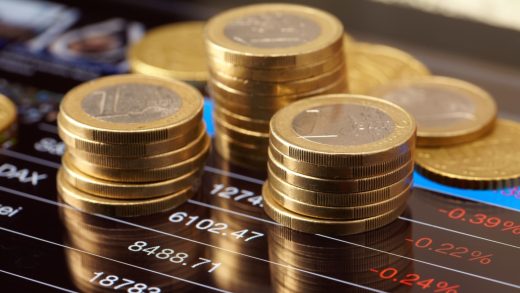Brokers play an essential role in this industry, and you should be able to trust your broker with your investment. Research the brokerage firm and have a world with their other clients. Know what the rules and policies are and will it be safe to deposit your cash in their trading account. Once you are sure about the broker, take a demo account and familiarise yourself with the system. Later you can opt for a managed account or a funded account.
Forex is the process of buying and selling international currencies to ones benefit. It works almost like the stock market, just that here you trade currency. The currencies and their values are always fluctuating depending on the market and happenings of the industry. Traders buy currency when the market has fallen and sell it when there is a rise in the value of these currencies. This might seem a bit complex, but the foreign exchange is easy to learn, before you invest your money, you will have to spend a lot of time to understand the market of these currencies.
Before you step into the world of foreign exchange, you must have enough knowledge about the sector. Market and industry analysis is a must. Without adequate research, the forex market will chew you and spit you right out, leaving you bankrupt. Forex is easy to learn but challenging to master, you will need to do a lot of reading before getting into this business, and it should be a continuous activity for this profession. In the stocks and forex market, information is everything, and you will have to estimate if the market is going to rise, fall or go in circles. Reading and keeping yourself up to date with the market news is essential, there are a lot of things which affect a countries market from the death of a political figure, emerging refugee crisis to diplomatic talks with other governments. A good trader should be aware at all times to protect his investment from crashing.
To create a forex account follow these steps
Forex or foreign exchange is the trading of international currency to one’s profit. After the establishment of the Bretton Woods System trading in foreign currency become inevitable and gave rise to foreign exchange as we know it today. But times were different back then, the invention of the internet and advancements in technology has made it possible for small scale individuals to compete against large scale Multi-National Corporations (MNC’s). The primary objective of trading is to gain profit, and the case is that same with forex. When you trade your home currency with the legal tender of a country, which is higher than yours, then you are trading down.Hungary’s vulnerabilities have increased this year. Its current account gap has widened mostly due to its high energy imports bill at a time when the government has only just started to rein in a huge budget deficit, after a spending spree which helped Orban win a landslide in April elections.With uncertainty over EU funds and the EM backdrop, we prefer to keep a dislike stance on HUF,” Morgan Stanley said in a note on Friday, referring to the currency.The recent FX underperformance and rise in HUF yields increase pressure on the government to strike a deal,” Citigroup analysts said.
On Monday, a day before the NBH is expected to hike interest rates again, the forint fell to a record low 404.50. It has weakened 8.6% so far this year, decoupling from its peers in the region.The Polish zloty has eased 2.2%, while the Czech crown has gained half a percent, supported by hefty rate hikes and, since May, central bank interventions to prevent weakening.
The Czech National Bank has ample ammunition, holding 156.1 billion euros in international reserves at the end of May.The NBH, which has lifted its base rate by over 500 basis points in the past 12 months, is expected to raise the rate (HUINT=ECI) by another 50 bps to 6.4% on Tuesday, but some analysts pencilled in a bigger rise. The bank, which raised its one-week deposit rate to 7.25% on June 16, had 34 billion euros in international reserves at the end of May.On June 9, Hungary issued foreign currency bonds worth $3.8 billion, which increased reserves, but those still pale in comparison with Czech levels. The NBH never communicates its moves in currency markets.
“It is not a coincidence that the forint has decoupled from the region to such an extent. As long as there is no EU deal, this will not change,” said Peter Virovacz at ING in Budapest.e are prepared for all scenarios – we can move fast if necessary, but we are also prepared that we will have to survive without the funds,” he said. “It is not a good scenario for us but we are But analysts say this is a scenario Hungary should avoid or risk a sharper market sell-off.We pencil in the EUR/HUF moving to 420 by the end of th
year and negative returns against forwards. The risk is toward a sharper/faster sell-off amid thin liquidity and in periods of negative sentiment swings,” Societe Generale said last week. “These may occur in response to negative developments in the rule of law spat.”This month the European Commission approved billions of euros in COVID-19 recovery funds for Poland after withholding approval for a year on the grounds that Warsaw has damaged democracy. But the money will not flow until Warsaw makes reforms to its judiciary.


